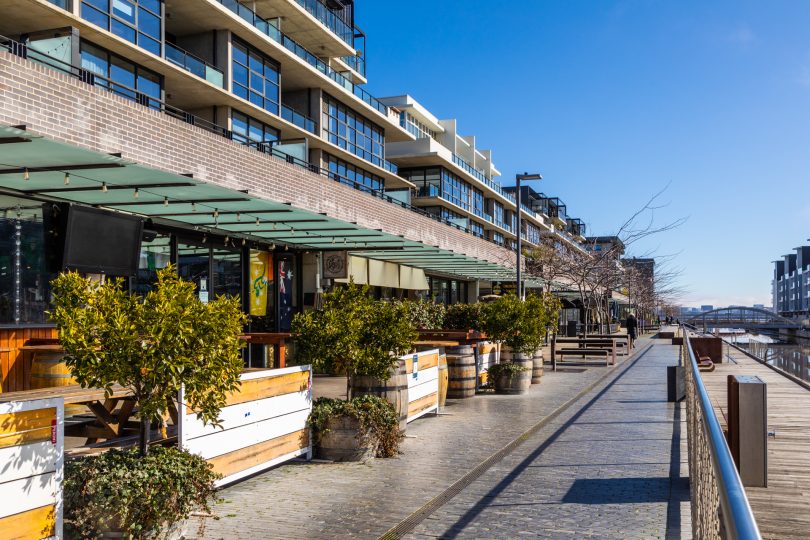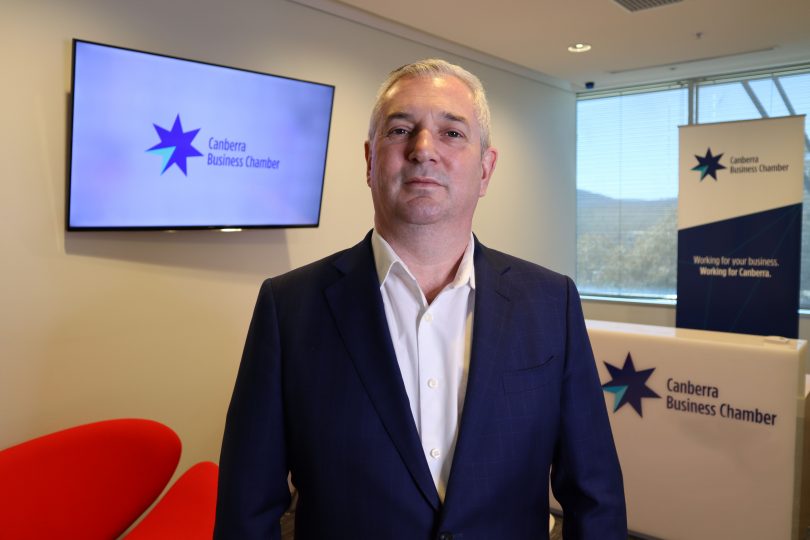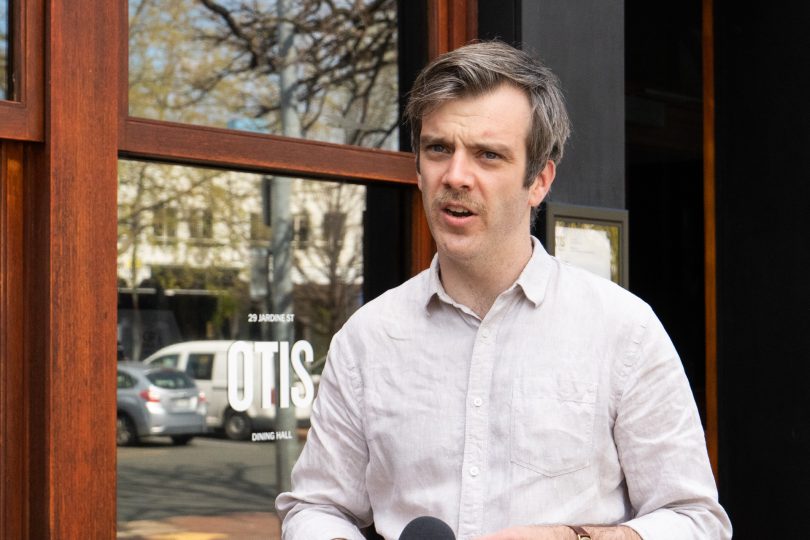
Canberra businesses have welcomed the eased close-contact quarantine requirements and hope they will alleviate staff shortages and workforce pressures. Photo: Michelle Kroll.
Businesses around Canberra breathed a collective sigh of relief this morning as the relaxation of household quarantine rules kicked in.
Since 11:59 pm last night, asymptomatic close or household contacts of confirmed COVID-19 cases are no longer required to undergo seven days of quarantine. However, they still have a number of rules to abide by, including wearing masks while indoors and testing regularly if required to attend work or education facilities.
The eased requirements couldn’t have come soon enough for Truefitt & Hill’s managing director Khushwant Dhanoa.
Earlier this year, Mr Dhanoa’s business was hit particularly hard as most of his support staff are university students. As a cluster of COVID-19 cases at the ANU grew to around 800 cases, with countless more close contacts in quarantine, nearly all of Mr Dhanoa’s staff had to quarantine.
“It was rough,” he said, reflecting on the start of this year.

Khuswant Dhanoa and John Murphy of Truefitt & Hill. Photo: Thomas Lucraft.
“We tried our best not to affect appointments for our customers, but this put immense pressure and a real strain physically and mentally on the staff who were able to work,” Mr Dhanoa explained.
He has been working seven days a week to ensure adequate staffing levels at the barbers. He said the only alternative would have been closing the shop, but that was hardly viable as it impacts clients.
Mr Dhanoa described the new rules as “practical” and “common sense” and hoped they will help ease some of the pressure he’s been under for the last few months.

CEO of the Canberra Business Chamber said the eased requirements are a relief for many businesses. Photo: Supplied.
Canberra Business Chamber CEO Graham Catt said this has been a common experience for many businesses and welcomed the changes made by the ACT Government.
Mr Catt said he’d heard businesses had been forced to close or reduce their operations due to staff shortages while their healthy workers remained in isolation at home, unable to work because of isolation rules.
“This has been impacting just about every sector and every type of business,” Mr Catt noted.
“There are the extreme ends of the scale where cafes have to close because all of their staff are identified as close contacts in one go, but other businesses and others are also being impacted because they are falling months behind on orders and feeling those supply chain issues.
“It’s important to understand the scale of the problem.”
Mr Catt said while the changes wouldn’t fully put an end to this pressure, they would give much relief, but businesses would retain COVID-safe procedures.
“We don’t expect to see this translate into a massive influx of cases. We see it is giving workers who are tested, well and healthy and wanting to go to work the chance to make an arrangement where that can actually happen.”

AHA ACT General Manager Anthony Brierley said many COVID-free workers were furloughed as close contacts. Photo: Region Media.
Hospitality businesses – where some of the most extreme examples of worker shortages have been visible – also welcomed the change.
General manager of the ACT Branch of the Australian Hotels Association, Anthony Brierley, said many cafes, bars and restaurants had been grappling with instances where multiple staff members were being furloughed and unable to work at very short notice.
“Frustratingly, in many of these cases, the contact never caught COVID-19, but they couldn’t come to work for a week,” he said.
“We’re hopeful now that with these rules, we may be able to put this behind us.”
But both Mr Catt and Mr Brierley said many industries will continue to grapple with staff shortages more broadly for the foreseeable future.
Eased quarantine requirements came into effect over the border in NSW and Victoria last Friday. For now, household contacts of confirmed COVID-19 cases are not able to attend ACT public schools.














